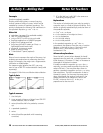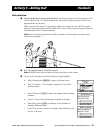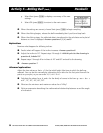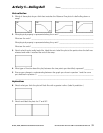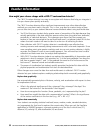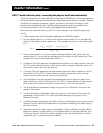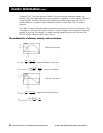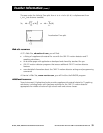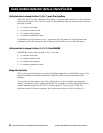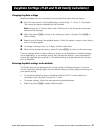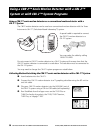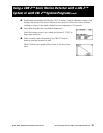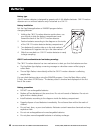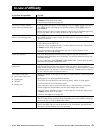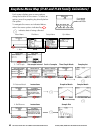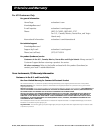
36 GETTING STARTED WITH THE CBR 2™ SONIC MOTION DETECTOR © 1997, 2004, 2006 TEXAS INSTRUMENTS INCORPORATED
Sonic motion detector data is stored in lists
Collected data is stored in lists L1, L6, L7, and L8 in EasyData
When the CBR 2™ motion detector collects data, it automatically transfers it to the calculator
and stores the data in lists. Each time you exit the EasyData App, you are reminded of where
the data is stored.
0 L1 contains time data.
0 L6 contains distance data.
0 L7 contains velocity data.
0 L8 contains acceleration data.
For example, the 5th element in list
L1 represents the time when the 5th data point was
collected, and the 5th element in list
L6 represents the distance of the 5th data point.
Collected data is stored in lists L1, L2, L3, L4 in RANGER
RANGER also stores collected data in lists. These are:
0 L1 contains time data.
0 L2 contains distance data.
0 L3 contains velocity data.
0 L4 contains acceleration data.
Using the data lists
The lists are not deleted when you exit the EasyData application or RANGER program. Thus,
they are available for additional graphical, statistical, and numerical explorations and
analyses.
You can plot the lists against each other, display them in the list editor, use regression
analysis, and perform other analytical activities. For example, you could collect data from a
student walking away from the
CBR 2™ motion detector. Then using the TI-84 Plus
calculator manual-fit linear regression, you could have students find a line of best fit.



